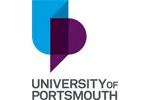We're moving! This site will be relocating to goingto.university in 2026. Please update your bookmarks to the new address.


| The award | How you will study | Study duration | Course start | Domestic course fees | International course fees |
|---|---|---|---|---|---|
| BSc (Hons) | Full-time, Sandwich | 3 - 4 years | September | - | - |
Overview
Advances in physics lead to new technologies that change our world and forge a path to a brighter future.
Quantum theory (the study of the subatomic) and the theory of relativity (that space and time are connected) challenge our imaginations. On this physics degree course, you'll uncover an amazing world that lies beyond what we can see. You'll learn to question the impossible and develop the confidence to push against the boundaries of what we think we know.
You'll have the opportunity to study topics including health physics, the fabrication of new bulk and nano-materials, and the application of fundamental quantum effects in the development of quantum information processes. You’ll graduate with strong mathematical, analytical, problem-solving and computational abilities that are in high demand.
BSc or MPhys?
You can study this course as a 3-year Bachelor's degree (BSc) or a 4-year integrated Master's degree (MPhys). The MPhys allows you to achieve a Master’s level degree with just one extra year of undergraduate study, further enhancing your career prospects.
Physics at the University of Portsmouth is ranked 6th of all UK universities and the top modern university for research quality
Research Excellence Framework (REF) 2021
Read more about our outstanding physics research
Course highlights
Careers and opportunities
This physics degree will give you strong mathematical, analytical, problem-solving and computational abilities that are in high demand in sectors like financial services, aerospace development and publishing. Physics graduates are earning an average of £33,500 5 years after graduation, while the UK government puts your earning potential as high as £50,000.
You'll have the chance to do an industrial-based research project under supervision of a leading physicist, such as IBM, Medical physics department in QA Hospital, Airbus, QinetiQ, working in radar for BAE Systems, or data engineering within the finance sector.
After the course you could also continue your studies to a PhD or other postgraduate qualification. Discover our world-leading physics research and Andrew's journey to a PhD in Physics.
Graduate destinations
Our graduates have worked for companies such as:
What jobs can you do with a physics degree?
Our graduates now work in roles including:
What areas can you work in with a physics degree?
You could apply your skills and knowledge in areas such as:
Placement year (optional)
Taking an optional placement year will give you the experience you need to increase your chances of landing your perfect role after graduation.
We'll give you all the support you need to find a placement that prepares you for your career, and we'll continue to mentor you throughout your placement.
You could also choose to set up your own businesswith support from us.
Potential roles
Previous students have taken placement roles such as:
Potential destinations
They've completed placements at organisations including:
You may be able to do a placement through the South East Physics Network (SEPnet) Bursary Scheme. This 8-week placement includes a £2000 bursary.
https://www.port.ac.uk/study/undergraduate/undergraduate-fees-and-student-finance
112-120 points from 2 or 3 A levels, or equivalent, to include a relevant subject.
English language proficiency at a minimum of IELTS band 6.0 with no component score below 5.5.
Below are some suggested courses at other providers that you may also be interested in:
Fashion Product Management Master Degree
IIFM | Italian Institute of Fashion Management
Find out moreManagement of Innovation and Sustainable Business Development MSc
NTNU School of International Business
Find out moreConsider a Foundation or Pathway course at University of Portsmouth to prepare for your chosen course:
If you do not meet the entry requirements for this course then consider one of these courses from another institution:
There are 530 other courses listed from University of Portsmouth. A selection of these are displayed below:
Join the StudyLink email list and never miss a chance to turn your study abroad dreams into reality!

Find out more about studying in the United Kingdom